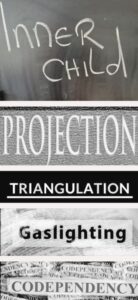1.Gabor Maté
Gabor Maté underscores the profound importance of childhood and the deep impact events from that period have on shaping our personalities and the perception of our reality. He particularly highlights the pivotal role of the mother-child relationship in early childhood, emphasizing that children who experience love and have their basic needs met are better equipped to navigate life’s challenges. The essential need of a child is to feel accepted and unconditionally loved, without having to do anything to maintain a connection with their parents. Additionally, a child has a need for the freedom to experience all emotions – love, anger – and to explore the world around them. The lack of fulfillment of these childhood needs can create a belief that one is not good enough.
Listening to Maté’s speeches, I’ve discovered the profound impact of trauma on our lives, realizing that trauma is a wound that originated as our reaction to a particular event. Every time an event touches that wound, we feel pain and react as if reliving that moment. Maté emphasizes that trauma can be healed, and vulnerability is crucial for personal growth because without pain, there is no growth.
2.Marisa Peer
She uses the RTT technique, which takes us back to our childhood and events that have marked us. These events don’t necessarily have to be traumatic; it’s enough that someone criticized us or didn’t believe in us when we were children to form a belief that we are not good enough. Through this technique, we have the opportunity to observe events from our childhood from a distance, approach the child within us, and change the feelings and experiences that have marked us. The goal is to show the child within us that it is loved and has the right to explore and express its authenticity. This powerful technique helps us to re-live past experiences in a completely different way.
3.Sam Vaknin
Sam is an expert in the field of narcissistic personality disorder. He explains the concept of the dead mother and how it influences the development of borderline and narcissistic personality disorders. The relationship a child has with their mother in early childhood is the one that largely shapes their personality. The role of the father comes later. If the mother is emotionally unavailable or sees children as an extension of herself, and if children serve to regulate her emotions, she is considered a dead mother, and her children often develop personality disorders. According to him, the role of a good mother is to fulfill all the child’s needs in early childhood, but later, around the age of 3, to push the child away so they can separate from the mother and develop their own self.
In conclusion, the fusion of these three influential figures may appear unconventional at first glance. However, their podcasts have played a pivotal role in fostering a profound connection with my childhood and delving into the transformative events that have shaped my identity. I trust that you, too, will discover their insights to be valuable and inspiring. Remember, the journey to understanding oneself often involves unexpected intersections, and these diverse perspectives have enriched my exploration of the past. May their wisdom serve as a source of reflection and motivation for your own personal journey.



